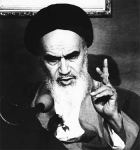Both our own research – and that of many others in the field – has
confirmed the central importance of emotional intelligence in leaders’
behaviour and the development of leadership style. Just as there are
measures of cognitive intelligence (IQ) so, in emotional intelligence, there
is the parallel yardstick of EQ, which is defined as:
‘The capacity for recognizing our own feelings and those of other people,
for motivating and energizing ourselves and others and for managing
emotions effectively, in ourselves and in our relationships.’
ONE CLOSE-QUARTER LEADERSHIP
Given that definition, the importance of high EQ in close-quarter leadership,
especially, becomes clear. Observation suggests that very emotionally
intelligent managers and leaders, typically:
• Generate positive emotions in their relationships with others.
• Sense and discern the important underlying issues in interactions.
• Readily create a climate of goodwill.
• Build sound relationships through awareness, empathy and
consistency.
• Exercise influence, through personal and professional integrity.
• Get things done, through the engaged commitment of others.
High EQ does not equate with stifled or suppressed emotion, neither does
it mean that those possessing it are naturally ‘soft’ and lacking in what
Tichy6 calls ‘edge’, which is the ‘steel’, essential to taking necessary tough
decisions. What seems to mark out those with high EQ, as being
different, is that they can – and do – use considerable cutting edge,
whenever they need to, but they use their steel constructively and positively,
without rancour and not as ‘punishment’. Typically, they:
• Have clear principles and values and stick to them.
• Exercise strong self-discipline in their judgement and decisions.
• Are manifestly consistent and honest.
• Challenge and disagree, but in a spirit of enquiry, exploration,
progress – and learning.
• Can be creatively abrasive, in order to provoke new/different
thinking and action.
• Engage in critical conversations and searching dialogue, to
establish shared meaning and commitment prior to taking
decisions.
and, in so doing, engage others – even in disagreement, or conflict – in
peak communication.
As Dr Mike Bagshaw7 of the Consultant Group ‘Trans4mation’ states:
“These emotional competencies have been shown to have a positive
effect in business performance, over and over again. And organizations
are beginning to sit up and take notice.”
Perhaps in the spirit of ‘Who cares wins’, Bagshaw and his colleagues
have developed a useful emotional intelligence mnemonic – C.A.R.E.S.,
which has high relevance in close-quarter leadership.
Summarized, but especially from a leadership standpoint, the concept
C.A.R.E.S. takes the following form:
C – Creative tension
This is a process of managing the inevitable pressures and tension
between the situation as it currently is – and how we need it to be. It
involves recognizing that many of the tensions surrounding necessary
change are both inevitable – and legitimate – and identifying the most
constructive, productive ways, to work through them – not dismiss them
as irrelevancies – to manage today better, in order to get to an envisaged
tomorrow.
A – Active choice
It means making decisions where there are several options available to
us and where there are consequent competing risks and doubts.
Choosing one course of action usually means that we are forced to forego
others and rejecting some advantages that we prefer. Emotionally intelligent
leaders appear to be able to come to a decision – involving risk
and choice – and move on, without hankering after what has been lost.
R – Resilience under pressure
What so often lowers group morale, motivation and the will to overcome
adversity, is not so much the difficulties facing the group as the leader’s
perceived attitude towards the challenge and his/her ability and resolve
to deal with it. Nowhere, in leadership is this more immediate – and
apparent – than when leading a team at close quarters.
E – Empathic relationships
Empathy means having the capacity and readiness to step into other
people’s shoes and see things from their point of view, with their perspectives
and priorities. Empathy – like awareness of self and others – lies
at the root of emotional intelligence and would seem to be a critical factor
in successfully engaging closely and meaningfully with others.
S – Self awareness
This means being aware of how we feel and react in different situations.
It is about knowing our strengths and our weaknesses and acknowledging
the things that we both like and dislike about ourselves – especially in
our dealings with other people. Self-awareness is not about self-obsession,
nor is it self-consciousness. Rather, it is the necessary, realistic
foundation to self-confidence and the preparedness to learn, develop and
move forward in life – and as a leader.
An important distinction about emotional intelligence is that it can be
learned and enhanced which, arguably, differentiates it from cognitive
intelligence and so-called IQ.
This does not mean changing your personality – nor doing a DIY ‘spindoctor’
job, to re-invent yourself – yet again! As Jo Maddocks (8) of JCA
(Occupational Psychologists) says: “The important question is – how can
I be more effective? The answer is NOT to change who you are, but to learn how to manage yourself and your relationships better.”
Many successful leaders, in interview, during the ten-company surveys,
stated that they never stop learning about leadership and management.
Most cited seemingly small incidents, that occurred during the course
of the working day, as frequently being the richest sources of their continuing
learning and growth as leaders. One senior Dutch banker made the point that simply remembering to say ‘thank you’, using the person’s
first name and looking them in the eye, as he said it, had given a significant
‘lift’ to his relationships with his team members and colleagues.
quoted from :
SeminarSeumurHidup.com | Pintu Gerbang Kesuksesan Bersama James Gwee
